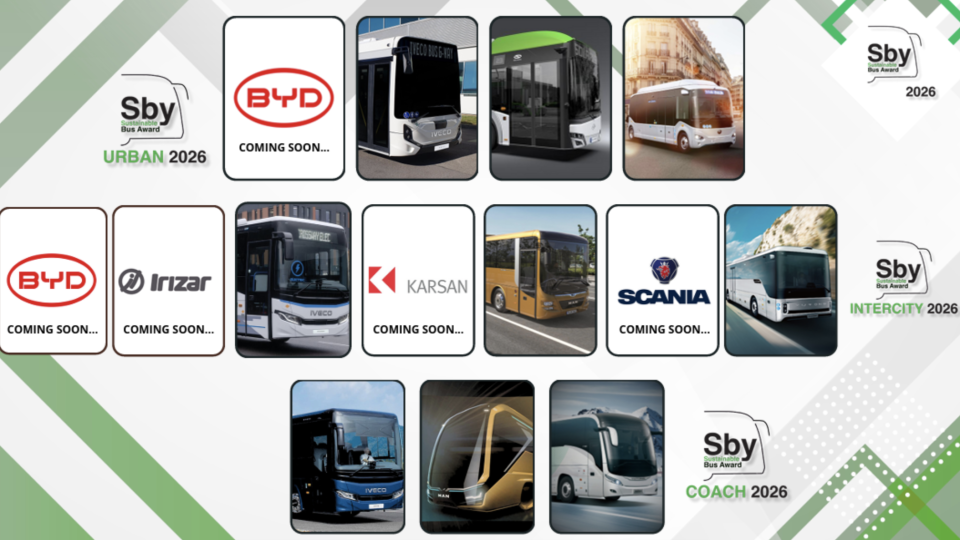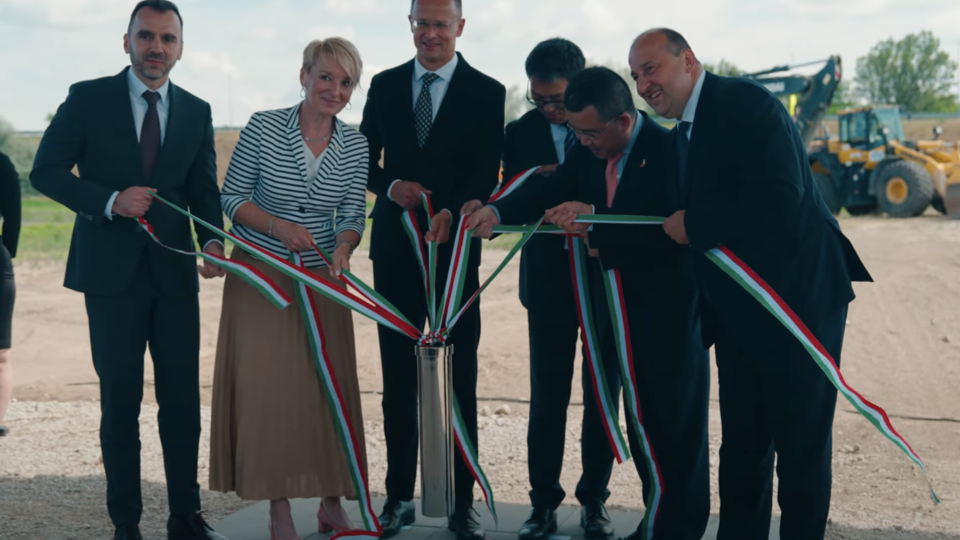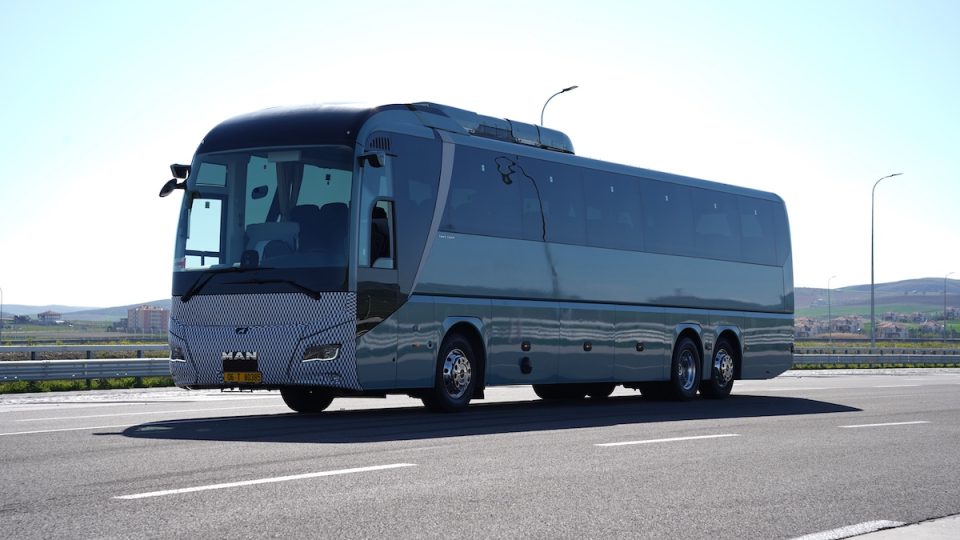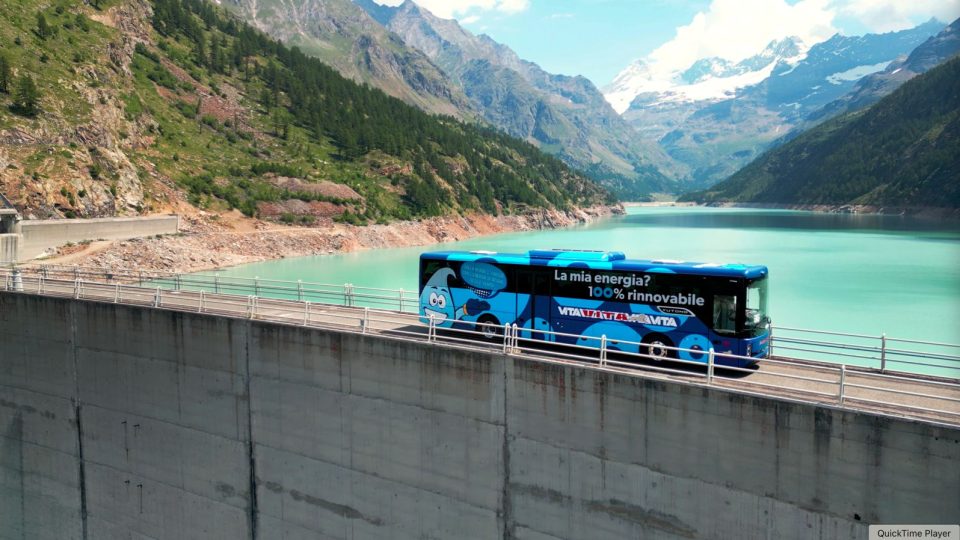De Lijn (Belgium) ready to order 44 plug-in hybrid buses (and to convert 280 hybrid buses into e-hybrids)
De Lijn is ready to order 44 plug-in hybrid buses and to upgrade 280 hybrid buses into e-hybrid vehicles. The Flemish Mobility minister Lydia Peeters commented: “Together with De Lijn we make giant step towards emission-free public transport”, as quoted in a press note from the the cabinet of Flemish Mobility minister. Mainly, De Lijn […]
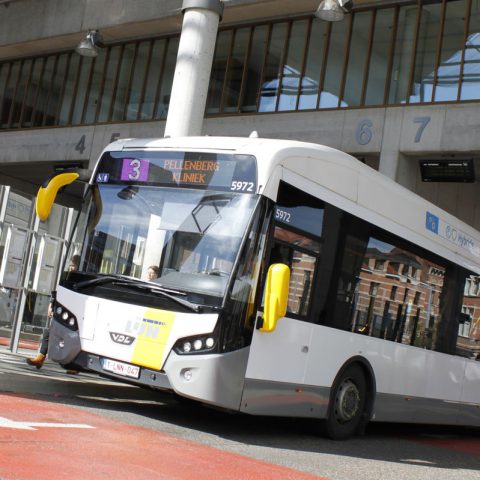
De Lijn is ready to order 44 plug-in hybrid buses and to upgrade 280 hybrid buses into e-hybrid vehicles. The Flemish Mobility minister Lydia Peeters commented: “Together with De Lijn we make giant step towards emission-free public transport”, as quoted in a press note from the the cabinet of Flemish Mobility minister.
Mainly, De Lijn is turning to hybrid technology concerning articulated buses. De Lijn’s Director-General Ann Schoubs explains that: “At this moment, the market cannot supply us with articulated electric buses with sufficient zero-emission range to meet our network requirements. As articulated buses represent a significant part of our fleet, De Lijn is keen to introduce a greener solution for this bus type in order to improve air quality soonest.”
In August 2020, the operator ordered 70 18-meter articulated buses with VDL, whose delivery is expected in the second half of 2021. An upcoming tender for as many as 350 battery-electric was announced in June 2021.
Peeters has allocated € 93 million of her EU COVID recovery budget towards a greener fleet for De Lijn, mainly for electric buses and their charging infrastructure
Lydia Peeters – De Lijn: ahead with public transport electrification
This week, De Lijn’s Board of Directors approved the order of 44 new articulated plug-in e-hybrid buses and confirmed the upgrade of 280 hybrid buses into e-hybrids (although the way to convert them is not specified).
“By deploying these buses, De Lijn comes even closer to zero emission in urban areas, with the final goal of emission-free service in the whole of Flanders”, says Lydia Peeters, Flemish minister of Mobility and Public Works. Ever since the new Flemish government took office in 2019, Peeters has been working hard towards a zero-emission fleet for De Lijn. To that effect, Peeters has allocated € 93 million of her EU COVID recovery budget towards a greener fleet for De Lijn, mainly for electric buses and their charging infrastructure.
De Lijn’s first hybrid buses were introduced in its fleet in 2009 – it currently consists of 530 hybrid buses. “The main advantage of e-hybrid buses over regular hybrids lays in their battery capacity,” Peeters explains. “With regular hybrids, that capacity is limited: while they accelerate emission-free from standstill, their low-emission diesel engine kicks in after about 400 m to recharge their battery pack. With e-hybrids, their battery capacity is expanded, so that they can drive fully electric for an uninterrupted 15 to 100 km.”
At this moment, the market cannot supply us with articulated electric buses with sufficient zero-emission range to meet our network requirements. As articulated buses represent a significant part of our fleet, De Lijn is keen to introduce a greener solution for this bus type in order to improve air quality soonest
De Lijn’s Director-General Ann Schoubs
De Lijn, an hybrid bus fleet
The De Lijn Board decision means that Flemish PTO «will have 150 e-hybrids with a 15 km electric range, 90 e-hybrids with an e-range of 30 km and 84 articulated e-hybrids with a 100 km uninterrupted electric range», the note says. By preference, the battery packs of these e-hybrid buses will be charged at their depots – this will happen at night and during the day, when the e-hybrids return for short periods. The main reason is that De Lijn strictly purchases green electrify only. The batteries may also be recharged outside of urban areas while the buses are en route via their low-emission EUR6 diesel engines that have DPF filters. This will enable the e-hybrids to drive several emission-free cycles per day.
Minister Peeters: “The Flemish region of Belgium invests heavily in sustainable transport. This announcement is yet another contribution towards meeting climate change targets. This is a first but important step to implement zero-emission traffic in the whole of Flanders in general and in its urban areas in particular. The EU’s recovery assistance will enable us to accelerate the introduction of emission-free buses into the De Lijn fleet. In practice, the support means that our 324 e-hybrids will be able to drive longer distances within urban areas without any emission, which in turn will improve air quality in the most densely populated urban areas.”
The fact that 234 out of these 324 e-hybrids are articulated buses, is no coincidence. De Lijn’s Director-General Ann Schoubs: “At this moment, the market cannot supply us with articulated electric buses with sufficient zero-emission range to meet our network requirements. As articulated buses represent a significant part of our fleet, De Lijn is keen to introduce a greener solution for this bus type in order to improve air quality soonest.”




